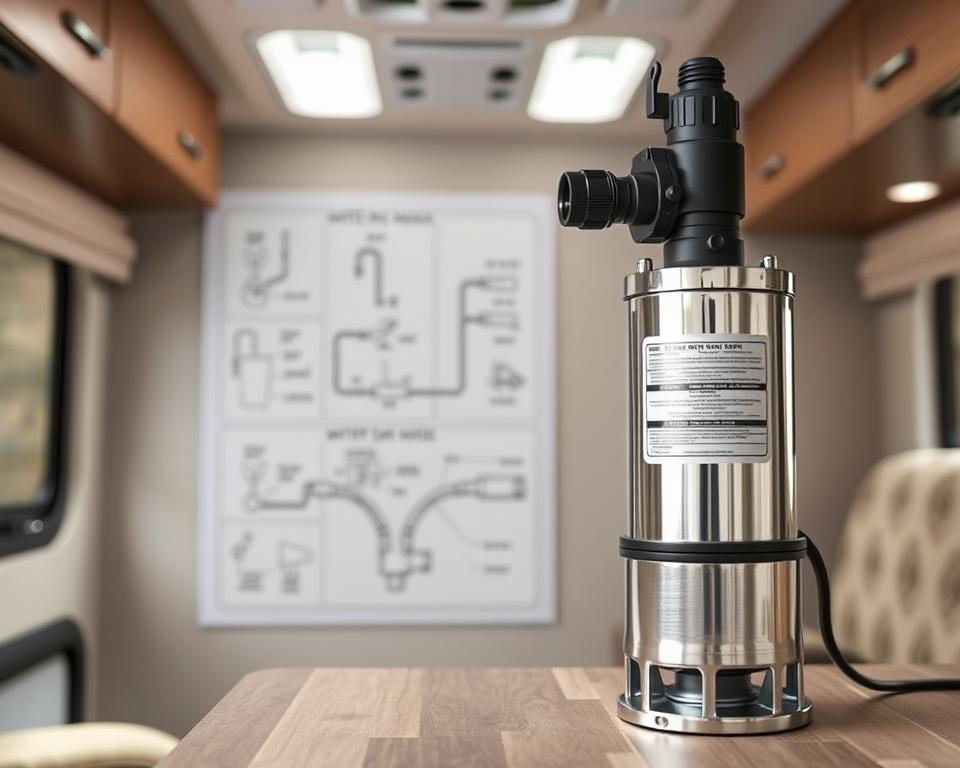Crucial Advice for Septic System Pumping
Do you ever think about how often you should set up septic system pumping so you can dodge hefty breakdowns? With in excess of 20 percent of U.S. households relying on septic systems, grasping their maintenance is essential. Having a clear idea of when to plan a septic tank service is critical to its lifespan. In addition, there are affordable septic pumping options that deliver top-notch functionality while staying on budget. This guide covers critical upkeep recommendations helpful for every homeowner.
Notable Observations
- Regular septic system pumping is vital for smooth performance.
- Spotting the signs that suggest the necessity for service can head off major issues.
- Choosing professional septic system pumpers guarantees quality maintenance.
- Affordable septic pumping alternatives are available for homeowners.
- Periodic inspections contribute to maximum system performance.
Know How Your Septic System Works
A septic system performs a crucial role in handling household wastewater, made up of several important components that work collectively. The main drain line channels wastewater from your home to the septic tank, where the process starts. In the tank, an underground chamber, solids sink at the bottom, and bacteria digest these solids, cleaning the waste efficiently.
The processed liquid outflow subsequently travels from the septic tank to the distribution box, where it is dispersed evenly across the drain field or leach field. Here, the soil carries on with the filtration, further purify the wastewater. Understanding the functions of these septic system parts is essential. It empowers homeowners to monitor and upkeep their systems effectively.
Understanding how your septic system operates lets you adopt proactive maintenance measures. It’s advisable to have scheduled appointments with licensed service providers of septic systems – RV tank pumping. They offer crucial insights for optimal operation of your system. These specialists help in planning the essential pump-outs and checks. This attentiveness can greatly lengthen your septic system’s lifespan.
Why Septic System Maintenance Matters
Keeping your septic tank consistently is key for homeowners who aim for their system to last. A well-cared-for system provides peace of mind and protects your property’s value. Without appropriate care, you’re facing system breakdowns and health dangers.
Opting for a first-rate septic pumping service is important. They provide timely inspections and pump-outs, clearing out sludge and scum buildup. If maintenance is neglected, emergency pumping may be required, which is pricey.
Following a steady maintenance plan is smart. It entails professional evaluations and regular pumping. This proactive measure helps avoid urgent issues, ensuring a more secure living environment for everyone.

Warning Signs for Septic Systems
Being alert to septic system issues can sidestep expensive repairs and major damage. Key signs signal when your system requires a check. These comprise:
- Slow drains throughout the house
- Pooling water in the yard above the drain field
- Foul odors near the septic tank or leach field
- Unusually lush grass growth in particular areas of your yard
These clues could point to problems that might result in your system failing. Swift intervention is critical. Contacting septic pumping experts for an inspection aids. Timely action avoids initial issues from turning into major ones. Moreover, routine upkeep ensures your system runs well and has a longer life.
Septic System Pumping: Best Practices
Correct pumping of your septic tank is crucial to prevent costly clogs and backups. It’s important to establish the right schedule for maintenance. Homeowners should usually plan pumping every 2 to 5 years, depending on the tank’s size and household wastewater levels. Intensive use of garbage disposals may require more frequent pumping.
Engaging qualified pumpers means your tank gets a thorough clean and check-up. During pumping, technicians look for any issues, such as faulty baffles. Spotting these problems promptly heads off costlier expenses and inconveniences later. Regular pumping schedules and expert help secure your septic system’s trouble-free operation.
Regular Inspections Keep Your Septic System Running
Regular inspections are essential for your septic system’s effectiveness. Septic system inspections reveal minor issues before they escalate. Experts advise inspections every three to five years, depending on system size and household usage. This prevents pricey fixes.
Maintaining maintenance records is vital for monitoring your system’s condition. These records provide insights into previous inspections, repairs, and the right time to schedule septic tank cleaning services. With this information, organizing for future upkeep becomes easier, maintaining septic systems in prime shape.
Regular inspections and detailed record-keeping not only enhance system efficiency but also extend its life. This approach safeguards the environment and the investment in a safe, operational home.
| Inspection Type | Recommendation Frequency | Benefits |
|---|---|---|
| Visual Inspection | Annually | Identify surface issues |
| Professional Inspection | Every 3–5 years | Assess functionality and detect problems |
| Septic Tank Pumping | Every 3–6 years | Prevent overflow and system failure |
Efficient Water Usage to Extend Septic Life
Smart water use is crucial for keeping your septic system robust. It not only aids the environment but also boosts the performance of your home’s plumbing. By practicing easy, yet effective, conservation methods, homeowners can reduce wastewater.
Stagger your laundry activities over the week instead of completing them in a single day. This helps the septic system to process water better and stops tank overflow. Opting for low-flow fixtures in your kitchens and bathrooms leads to considerable water savings, keeping the water pressure up while reducing the flow rate, thus diminishing the amount of wastewater produced each day.
Promptly fixing leaks is another practice to support your septic system. Even a small leak can cause a large waste of water, overburdening the septic system. Through frequent inspections and repairs, you contribute significantly to the system’s efficiency.
Prioritizing water conservation isn’t just beneficial for your septic system; it’s also a step towards eco-friendly living. Integrating such practices into everyday habits benefits both your household and the planet.
Proper Handling of Household Waste
Homeowners carry a vital role in keeping their septic system’s health by managing household waste properly. It’s important to avoid disposing of non-biodegradable items like wipes, plastics, and other harmful products in the system. These items can create clogs, leading to expensive repairs and a drop in efficiency.
Converting food scraps and organic materials is a helpful alternative to sending them to landfill. This practice greatly cuts down on the amount of solid waste entering the septic tank. Focusing on biodegradable waste disposal preserves the ecological balance needed for effective waste management.
It’s important to watch what goes down the drains. Non-decomposable items can necessitate more frequent septic tank pumping. By grasping and adhering to correct waste disposal methods, you can secure a more efficient and long-lasting septic system.
Safe Cleaning Products for Your Septic System
The health of your septic system is heavily influenced by your choice of cleaning products. Opting for septic-safe cleaning products is paramount. These products shield the balance of beneficial bacteria that decompose waste. Many standard cleaners contain harmful chemicals that jeopardize this balance, leading to expensive repairs or system failure.
Homeowners should look into natural alternatives that are both powerful and environmentally friendly. Common household items like baking soda, vinegar, and lemon juice are great choices. These natural cleaners are not only effective but also maintain your septic system’s health.
Keeping away from products that contain antibacterial agents and chlorine bleach is vital. Such substances harm the helpful good bacteria, undermining your system’s functionality. By choosing sustainable products, you protect both the efficiency and longevity of your septic system.
Why Bacteria Matter in Septic Systems
Bacteria perform a vital role in keeping your septic system functional. They digest solids organically and enhance nutrient processing. A lack of healthy bacteria can lead to system failure, bringing about hefty repairs.
Homeowners can bolster their system by adding organic additives. These products raise beneficial bacteria, making waste decomposition faster. It’s important to opt for organic additives that are helpful, not harmful, to the septic environment.
A healthy bacterial community is key to a septic system’s longevity and efficiency. It prevents solid buildup and lessens the need for regular pumping. Focusing on bacterial health makes waste management more effective and eco-friendly.
The Final Word
Septic system care is vital for the longevity and functionality of your home’s wastewater system. Sticking with essential maintenance tips avoids expensive repairs. Knowing routine pumping and inspections is paramount. This guarantees your septic system keeps in excellent condition.
Learning about your septic system’s operation and best practices in water and waste management is vital. Engaging professionals like All in Sanitation delivers expertise. This contributes to your septic system’s long-term health and offers reassurance.
Prioritizing proper septic maintenance today delivers future benefits. It protects your home and boosts your family’s quality of life. Prioritizing septic system care delivers certainty with a well-maintained system.


